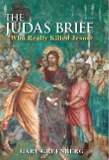One of the biggest problems in biblical studies is the constant crossing of the line between history and theology. This is not an issue of which side is right or wrong. It is about what each discipline is supposed to do. Practitioners on both sides of the divide frequently cross over and hinder the discussion within each discipline.
The historian is supposed to look at evidence without preconceptions and see what conclusions can be drawn about aspects of the past. Since we aren't omniscient, we can only attempt to reconstruct the past. After examining the evidence the historian draws a conclusion or develops a theory. The theory or conclusion may be correct, it may be wrong. The theory that best explains all the facts and anomalies relevant to solving a problem is the one that is adopted by most scholars in that field. That the theory is widely accepted doesn't necessarily mean it is right. The historian rejects supernatural explanations because the scientific evidence at this particular stage of our knowledge doesn't appear to support the existence of a supernatural state of affairs. That doesn't necessarily mean that there isn't a supernatural existence, but only that it doesn't yet come into play from the historical point of view in analyzing evidence.
Theology, on the other hand, starts from a fixed idea. That fixed idea may be right, it may be wrong. God either created the universe and all that was in it in six days or he didn't. Jesus was resurrected or he wasn't. There was a world-wide flood or there wasn't. Elijah raised someone from the dead or he didn't. But, the theologian starts from the premise that some particular claim is true, whether or not the scientific or logical evidence strongly supports that conclusion. All biblical analysis is then made to conform to that perceived truth. In biblical studies that fixed position is often that every word in the bible is true, although there might be other animating premises.
Let's take a brief look at how both sides occasionally cross the line.
For our first example consider Acts 5:36 and 37. The author makes reference to a messianic figure named Theudas and then says he was followed by another messianic figure named Judas the Galilean. The problem is that we know from the writings of Josephus that Judas the Galilean began his rebellion in Year 6 and Theudas dates to the early 40s. So either Josephus or the author of Acts is wrong. Theudas' revolt was quite well known in its time and Josephus was a child in Jerusalem when it happened. From the historical standpoint, there is no good reason to think Josephus' chronology of Judas the Galilean and Theudas is wrong. From the theological point of view, the author of Acts can't be wrong. So the historian argues that the author of Acts has a chronological error in his account. The theologian, however, argues that there must have been an earlier Theudas that Acts is referring to. Why would the author of Acts reference an unknown messianic figure with the same name as a very well known messianic figure and create confusion between the two. The theological argument makes no sense as history. Now it is possible that the theologian is correct. There is no way to disprove the argument. But the theologian is pretending that what he is doing is practicing history. He is not. he is doing theology. As an historical proposition, the theological argument is just silly, even though it is conceivably correct.
On the other hand, historians keep intruding on theology. A common example is to argue that when the bible says that God created the earth on a single day, the bible uses the term "day" in a symbolic way, and really means "a very long time period." This is just as silly as the theologian's "earlier Theudas" argument. The historian is trying to reconcile his own religious beliefs with his historical beliefs about evolution and related matters. There is simply no real textual basis for thinking the author of Genesis meant anything other than a twenty-four hour day, and in context the Genesis story also talks about separating day and night, and using the sun and moon as markers. Clearly the author of Genesis expects his readers to think in terms of 24-hour days. And when the historian intrudes on theology to reinterpret miraculous events in historical terms he or she is doing a disservice to the study of the Bible's meaning, and, consequently, a disservice to the study of history.
Another area where both sides muddy up the waters is in trying to find historical/scientific evidence for miracles. The parting of the sea by Moses is a miracle. All these attempts to find scientific explanations for how the event occurred are pointless. Either Moses miraculously parted this huge body of water in a near instant manner or he didn't. All these suggestions about volcanoes and tidal waves and tides and winds and shallow waters don't explain what happened and don't conform to the biblical account. The biblical story is a miraculous event that belongs in the area of theology or myth and historians shouldn't be treating it as a real historical event.
Similarly, we get all kinds of scientific gobbeldy-gook from historians and theologians attempting to explain Noah's Flood. We are told there must have been some local flood, or a storm, or a heavy rainfall, or waters broke over barriers or some other such nonsense. Noah's Flood, on the basis of the story and the evidence, is simply a miraculous event. There is no reason to think the author of Genesis understood the event as anything other than what he described or that it reflected any kind of ancient folk memory about real events. It either happened approximately as Genesis says or it didn't. Theologians say yes. Historians have to say no, based on the historical record. One or the other is right, but each should stay on his own side of the line when discussing the event. This doesn't mean that we can't discuss what sources the author of Genesis might have had for the story, and again we will have a theology/history divide on this issue, but lets keep things in their proper perspective. Theology isn't history and history isn't theology.
Subscribe to:
Post Comments (Atom)



3 comments:
I have argued that it would not be so surprising for there to have been two prophets called Theudas. See http://members.shaw.ca/rfellows/My_Homepage_Files/Page35.html
Comments welcome.
Richard.
I'm not certain I'm persuaded that one can look at the historical evidence without preconceptions. If what you mean is "as impartially as possible" then I would agree totally. But at any rate, I think that there is room for history and theology to inform one another in the same way that science and theology can inform one another, although perhaps the movement is primarily in one direction. Presumably historical evidence that does not match up with a textual account (just like scientific data that does not fit what a text says) can appropriately lead readers of the texts in question to adopt a non-literal or non-historical/factual approach to the text. That seems appropriate.
I do agree, however, that historical study and theology are different enterprises. The analogy I usually use with my students is a courtroom setting - proving something beyond reasonable doubt sufficiently so as to persuade a group of individuals who do not already have their minds made up. In such a context, there may be things that can be proven beyond reasonable doubt and yet turn out to be wrong, just as there can be things that actually happened that cannot be proven. But if we are to talk about the past at all, historical methods are the only ones we have, and we certainly cannot use our own spiritual experiences to trump the need to answer historical questions using the tools of historical inquiry.
I've been talking about a number of these issues on my own blog lately. It is at http://blue.butler.edu/~jfmcgrat/blog/
Obviously we all bring pre-conceptions into our historical analysis. We need to be aware of these and try not to let them mislead us. I don't think theology informs history but, to be clear, I do belive that many portions of the bible can inform history, just as any ancient texts can. On the other hand, knowing how theology shaped a text can help us retrieve any history that stands behind the text.
Post a Comment